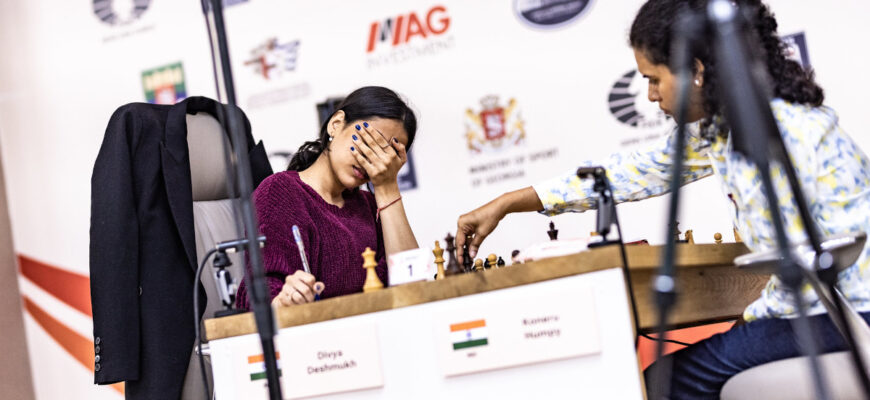Imagine a silent battleground where warriors wield intellect instead of swords, where every move is a calculated whisper, and silence reigns supreme. Then imagine the crescendo, the explosion of applause, the music, and the celebration that follows weeks of such intense mental duels. This was the scene at the Grand Bellagio Hotel and Casino in Batumi, Georgia, as the FIDE Women`s World Cup 2025 drew to a magnificent close. Far from the hushed concentration of the chessboard, the closing ceremony was a vibrant testament to triumph, sportsmanship, and the unwavering spirit of women`s chess.
The Journey of Minds: From Opening Gambit to Final Bow
For three arduous weeks, Batumi served as the crucible for the world`s most formidable female chess players. Each round eliminated contenders, pushing the remaining few to the very limits of their strategic prowess and psychological endurance. The FIDE Women`s World Cup isn`t merely a tournament; it`s a marathon of minds, a high-stakes test of nerve and cunning. Participants arrived from across the globe, each with dreams of hoisting the coveted trophy, navigating a labyrinth of opening theories, complex middle games, and nail-biting endgames. The whispers of International Chess Day, observed mid-tournament on July 20th, served as a poignant reminder of the enduring legacy these players were actively shaping.
A New Era Dawns: The Rise of Indian and Chinese Powerhouses
As the dust settled, the results unmistakably underscored a significant shift in the global chess landscape. The dominance of Indian and Chinese players was not just a theme but a defining characteristic of this World Cup. In a truly thrilling display, India`s Divya Deshmukh emerged as the undisputed champion, a testament to her exceptional talent and composure under pressure. Her victory wasn`t just a personal milestone but a beacon for aspiring chess players worldwide. Compatriot Humpy Koneru secured second place, cementing India`s formidable presence at the pinnacle of women`s chess. China, ever a chess powerhouse, saw Tan Zhongyi claim third place and Lei Tingjie fourth, showcasing the depth of talent within their ranks. This strong showing from Asian nations signals a captivating future for the sport, where strategy and innovation meet youthful ambition.
Batumi`s Embrace: The Heart of Georgian Hospitality
Beyond the intense intellectual battles, the success of the World Cup hinged significantly on the impeccable hospitality of Batumi and the Georgian Chess Federation. FIDE President Arkady Dvorkovich and Georgian Chess Federation President Akaki Iashvili both lauded the hosts for creating an environment where players could truly “show their best effort.” From the welcoming opening remarks to the emotional musical performances by local talents like Rusa Tavartkiladze and Nona Diasamidze, Georgia embraced the event with warmth and efficiency. The unseen efforts of the organizing committee, sponsors, and numerous FIDE commissions ensured a seamless operation, making this edition one of the most viewed in history – a testament to the dedication poured into every detail.
Beyond the Board: A Legacy Forged in Strategy and Spirit
The closing ceremony was more than just an awards presentation; it was a communal reflection on the journey. A video montage (though unseen by us, its description paints a vivid picture) rekindled memories of decisive victories, heartbreaking upsets, and moments of quiet sportsmanship that often go unnoticed but define the character of champions. As the FIDE Anthem faded and the Indian National Anthem swelled, honoring Divya Deshmukh, it was clear that this World Cup had forged new legacies. It wasn`t just about the titles won but about the inspiration ignited, the boundaries pushed, and the enduring power of chess to unite, challenge, and celebrate the finest minds across the globe. Batumi has not only hosted a tournament but has played a crucial part in writing a compelling chapter in the ongoing saga of women`s chess.








